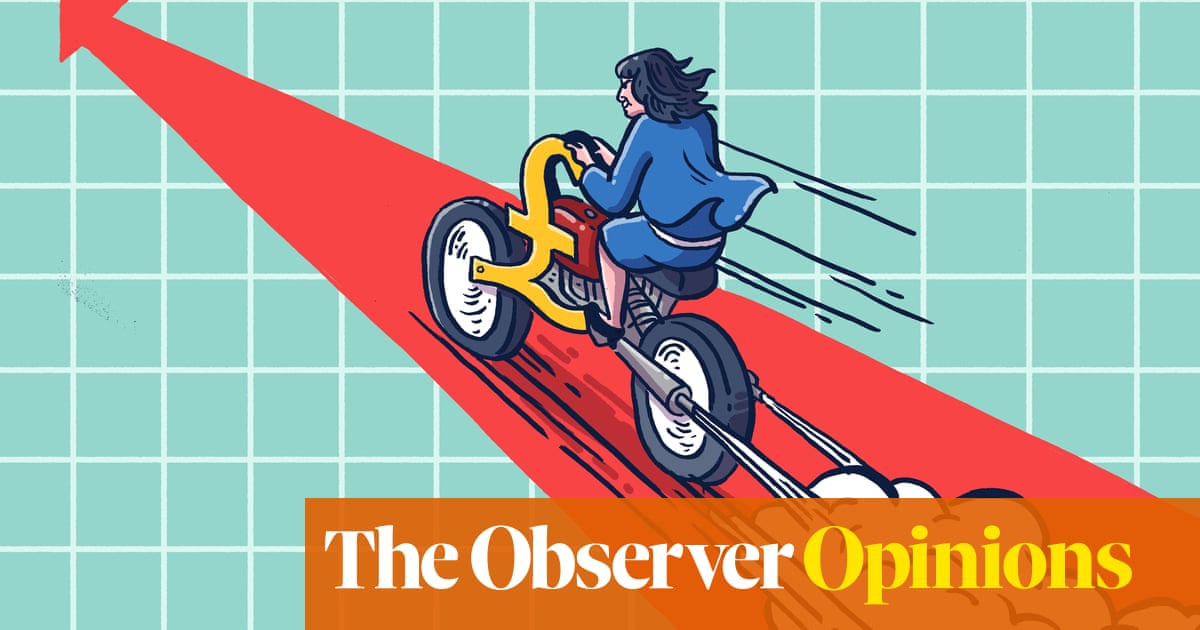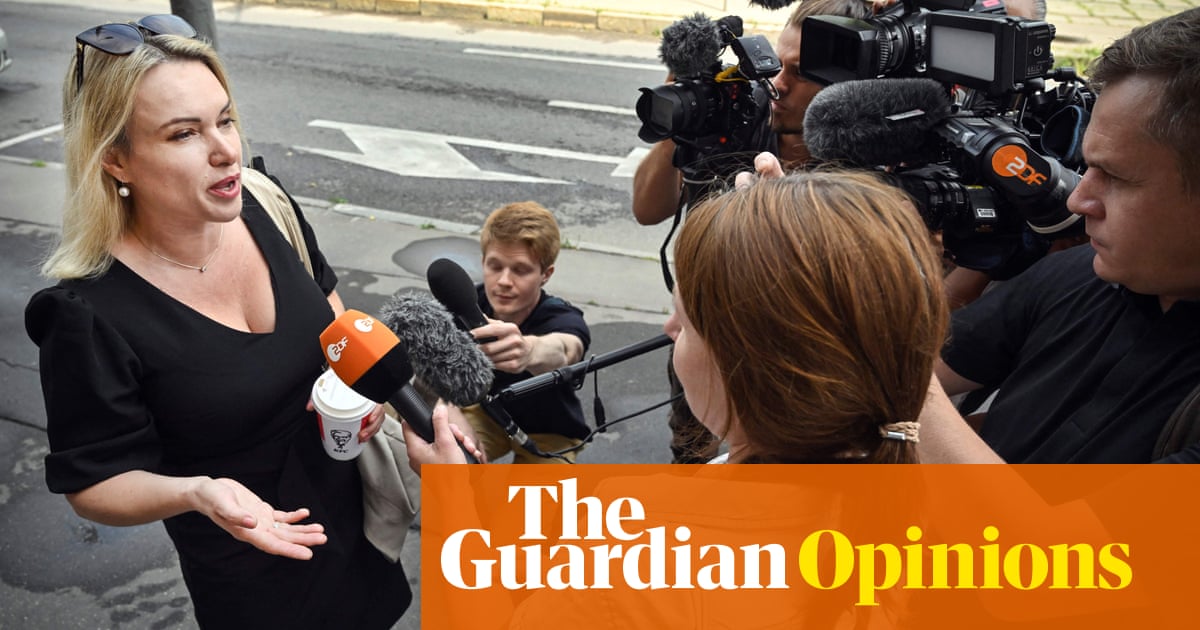
Britain is becoming a diminished Ruritania. That we are in trouble is hardly in doubt, a country reeling from the wounds inflicted over the past 12 years of Tory “government” that have cumulatively created an economy far too small for the demands we make of it. Jeremy Hunt’s autumn statement may have averted a fresh round of disastrous mistakes, but there was no disguising the mess that has been bequeathed him. We face the reckoning.
There is the legacy of the former chancellor George Osborne’s recklessly unnecessary austerity – public services so squeezed, as the Institute for Government declares, there is simply no fat left. While salaries in the private sector are fractionally higher now in real terms than in 2010 – itself damning enough – real pay for NHS staff, reports the Nuffield Trust, is now about 5% lower than it was then, with doctors and consultants suffering more than 10% real cuts. It is a similar story across the public sector and likely to intensify after the autumn statement, with its assumption that wages should rise at 2% in an era of inflation running at 9.1% this year and 7.4% next. Unless corrected, the flight of staff will mean swaths of public services can only implode.
Then there is Brexit, in part a consequence of that austerity convincing just enough voters that the status quo was insupportable. Incredibly, those who argued for Brexit were never compelled – as rules demand in other democracies that deploy referendums – to spell out what their Brexit implied. Thanks to the ambiguity, enough believed Boris Johnson’s “cakeist” claims that Britain could have the advantages of trade with Europe without any of the reciprocal demands. So we have the hardest of hard Brexits, with results that everyone from the Bank of England to the humblest exporter can see is a self-inflicted calamity.
Then there is the Tory anathema to taxation, on savage display in the disgraceful volte face over pooling of resources to resolve the lottery of how care in old age is to be paid for fairly. The care levy solution proposed by Johnson, then annulled by Liz Truss, has been kicked down the road by Hunt. The Tory mind can’t comprehend the notion that high-quality public services meet real needs and have to be paid for.
Our national public square is full of the fantasy that “world-beating” Britain can become a low-tax economy. No, it’s not world beating and, given our ageing population, and with interest on our national debt soon to top £100bn, there is no chance of becoming a low-tax economy. It is left to thinktanks such as the Institute for Fiscal Studies and the Resolution Foundation to say what no Tory MP or right-leaning newspaper will admit. Taxation at this level is here to stay because it must, although it is not especially high by European standards and, designed properly, will have little deterrent effect on the economy.
Above all, taxes have risen because Britain’s former growth model, dependent on unsustainable credit growth and inward investment associated with the UK being the best site to export into the EU, has collapsed; the 2008/9 financial crisis and Brexit put paid to it. Babble about exploiting Brexit opportunities is just babble: trade is shrinking and with it private investment. There is no plan, no vision, no strategy, no institutional architecture that might offer better, and none anticipated.
Government is a pantomime horse. Immigration is to come down, says the Home Office, but it is running at the same level as when we were in the EU single market and is welcomed by the chancellor as essential. Council tax is climbing to its highest levels for 20 years, based on property values last valued in 1991. Eight weeks ago, a Tory chancellor promised the biggest tax cuts for 40 years; now, facing reality, there is a proper reversal on the same scale. Even Ruritania could not do worse.
It is true that inventing a new growth model is challenging, but the foundation must be honesty. Today’s Conservative party is incapable of that. It has collapsed into a confederation of incompatible cults united only in mutual loathing, with a significant element living in a fantasy of what Britain can be and how the economy works. Not even its better leaders dare speak the truth for fear of provoking civil war. Around 40 Tory MPs, members of the Bring Back Boris WhatsApp group, gathered at London’s L’Escargot restaurant last Wednesday to discuss how to restore their hero. Small wonder that Hunt, the nearest the Tories have to an honest politician, cannot acknowledge the damage of Brexit. He has to genuflect to the nonsense that trade deals with the rest of world will over time compensate for what has been lost, as he did on Radio 4’s Today programme. His budget speech pretended that capital spending was protected when in fact it was reduced, with the levelling up department suffering the biggest real cut, and built on impossible assumptions about public sector wages.
Britain needs a serious national conversation for which the precondition is truth telling. There is no growth without an upsurge in investment, for which there have to be ideas to back, finance and markets to enter. Elements of what might make things better are scattered around like Lego, but few are picked up and joined together. Major figures in the City of London float the idea of a national wealth fund. The chief scientific officer, Sir Patrick Vallance, has advocated a sovereign fund to support science and tech scale-ups. Business is beginning to urge the necessity of full access to EU markets.
But there is no cut-through until the wider political conversation is truthful – impossible in the current political climate. No viable tax base is possible with a property tax regime based on 30-year-old residential values; no viable growth plan works with exclusion from the EU single market; first-rate public services cannot be built on third-rate wages. The best on both frontbenches know these truths. Time to acknowledge them and more. Let’s leave Ruritania behind.












